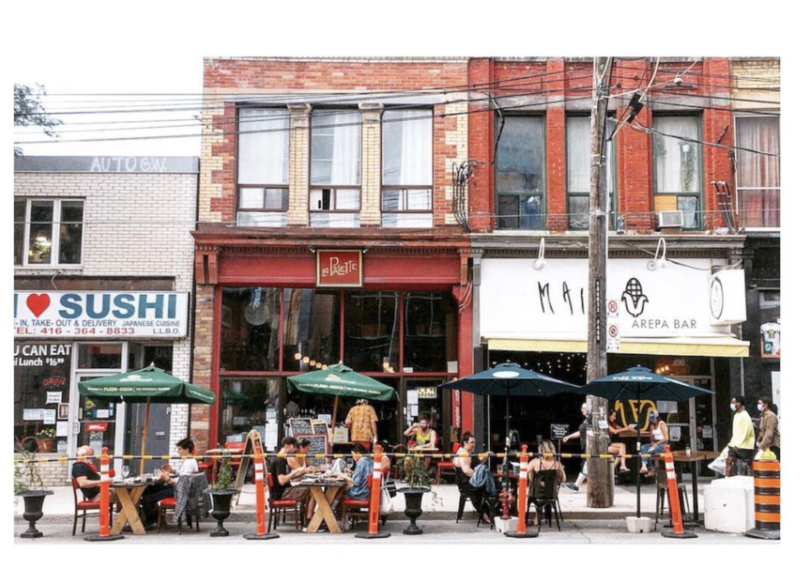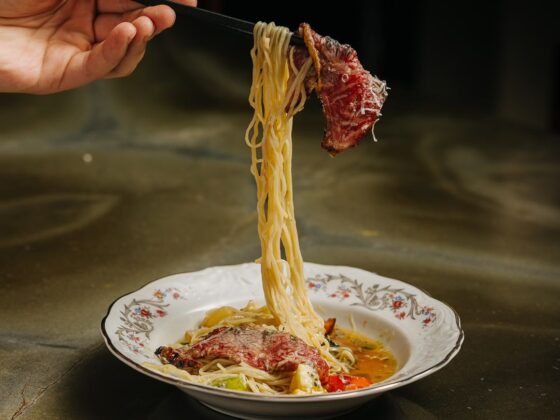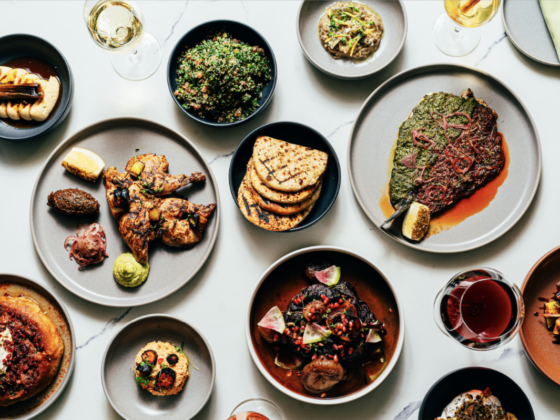There was a time, not too long ago, when indoor dining was not possible, prompting the city to come up with a solution to keep the restaurant industry afloat. The answer they came upon was a similar solution to the one found in cities across the world–an outdoor seating program, called CaféTO, that saw restaurants and eateries have patios on sidewalks, allowing guests to dine safely and within the city’s regulations. The program was widely considered successful, so the city recently announced that CaféTO would become a permanent fixture in the city. But, of course, it comes at a cost.

CaféTO becomes permanent: what you need to know
When indoor dining was not an option, the city implemented CaféTO as a response to the struggles of the restaurant industry. It provided “safe, expanded outdoor dining areas in the public right-of-way while indoor dining capacities were restricted,” according to a press release. When restrictions loosened, in 2021, city officials announced that they had approved a plan to transition the response program into a permanent fixture in the city, “starting with a return to standard sidewalk café permitting and a streamlined administration and application process,” according to the press release.
“CaféTO is a success story for our hospitality industry and has enhanced the look and feel of our city. As we move out of the COVID-19 pandemic, proposed changes will make CaféTO more sustainable for years to come,” says Mayor John Tory. And, of course, his sentiments of success were echoed by other city officials. “Patio season is an integral part of Toronto’s restaurant industry and contributes to the vibrancy of our streets,” says “Deputy Mayor Jennifer McKelvie of Scarborough-Rouge Park. “I am delighted that the CaféTO program will continue this summer and will do so in ways that promote a more accessible, balanced and active use of valuable public space. I look forward to joining my fellow diners on CaféTO patios across the city this summer.”
ADVERTISEMENT |
The press release revealed that “1,327 establishments across the City have taken advantage of CaféTO in 2022, 1,213 in 2021 and 801 in 2020.” So, with the 2023 changes in place, the program’s aim is to protect the 15 percent property tax reduction that nearly 30,000 local businesses currently benefit from, as well as provide outdoor space for many of the city’s eateries. But, of course, the changes to the program come with more regulation, including increased fees, a more convoluted administration process, and other red tape. And, not everyone is impressed.
Pushback to the new program
Restaurants Canada is among the critics of the new program, noting that the additional fees and administrative burdens will just increase restaurant struggles. That doesn’t necessarily mean that they dislike the program, but rather would see it amended to include what the company deems more restaurant-friendly regulations.
“Restaurants Canada is encouraged to see the CaféTO program modified to become a permanent resource for local restaurants to increase revenue during our sector’s high season while adding liveliness to the city’s neighbourhoods,” said Kelly Higginson, COO of Restaurants Canada. “However the program comes with newly proposed costs, red tape and administration challenges that have many of our restaurant members questioning whether they will be able to afford to participate in the program.”
“The unfortunate reality is that 50 per cent of Canadian restaurants are operating at a loss or just breaking even so now is not the time to increase their costs,” continued Higginson, noting that Restaurants Canada was not consulted in the process in the early development stages of CaféTO. “Toronto’s downtown core has still not recovered post-pandemic, as high vacancy rates in neighbouring buildings continue to have a significant impact on traffic to restaurants. Hundreds of restaurants have shuttered permanently in the past three years, devastating the industry and changing the character and vibrancy of many of Toronto’s neighbourhoods.”
ADVERTISEMENT |
Alberto Richards, who owns Nothing Fancy, is just as skeptical. “The CaféTO program already had quite a bit of inequality when it came to different neighbourhoods, so this pricing seems to be intended to keep CafeTO out of certain areas without an explicit ban,” he says. “Moreover, as a service, CaféTO is not run well enough for me to justify the expense. If any other provider gave me the service I have received from the CaféTO department they would have no clients after one season. This is an unnecessary cost to a program that was supposed to be a lifeline.”
For now, CaféTO, as proposed by the city, resumes as soon as patio season returns.






